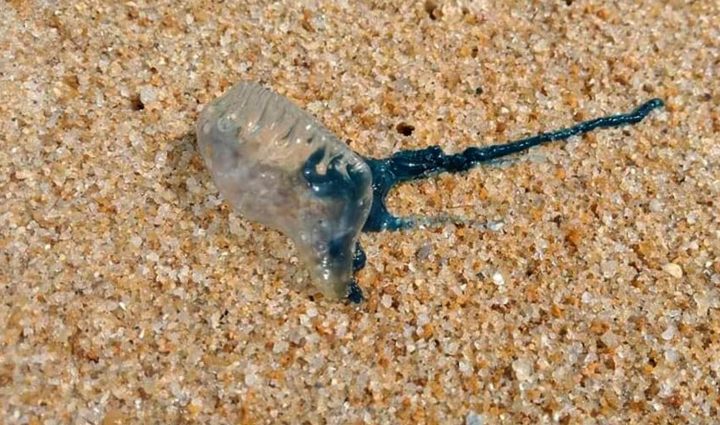PUBLISHED : 28 Feb 2024 at 08:32

Authorities are warning tourists against swimming on Chala That Beach in Songkhla province following sightings of the deadly Portuguese man-of-war, a jellyfish-like creature, along the shoreline from Singha Nakhon district to Muang district.
Many tourists have reportedly been stung by the sea-drifting creature, which is regarded as one of the world’s most venomous marine species.
Wanchai Parinyasiri, mayor of Songkhla City, has instructed lifeguards to warn tourists and always have a first aid kit at their disposal. The injured, however, should be immediately admitted to hospital, he said.
He also urged people to avoid the beach for a while as the deadly jellyfish are expected to remain there until early April.
The Portuguese man-of-war is a siphonophore with numerous microscopic venomous tentacles. This ocean drifter is recognised by its balloon-like float, which may be blue, violet or pink, that rises up to 15 centimetres above the water surface.
They are often found in the Atlantic, Indian and Pacific oceans. In Thailand, they are occasionally washed ashore in the southern provinces of Narathiwat, Pattani, Songkhla, Krabi and Phuket during the monsoon season. The sting of this particular siphonophore can affect the nervous system and heart, causing severe pain and possibly death. People are strongly advised not to touch them.

